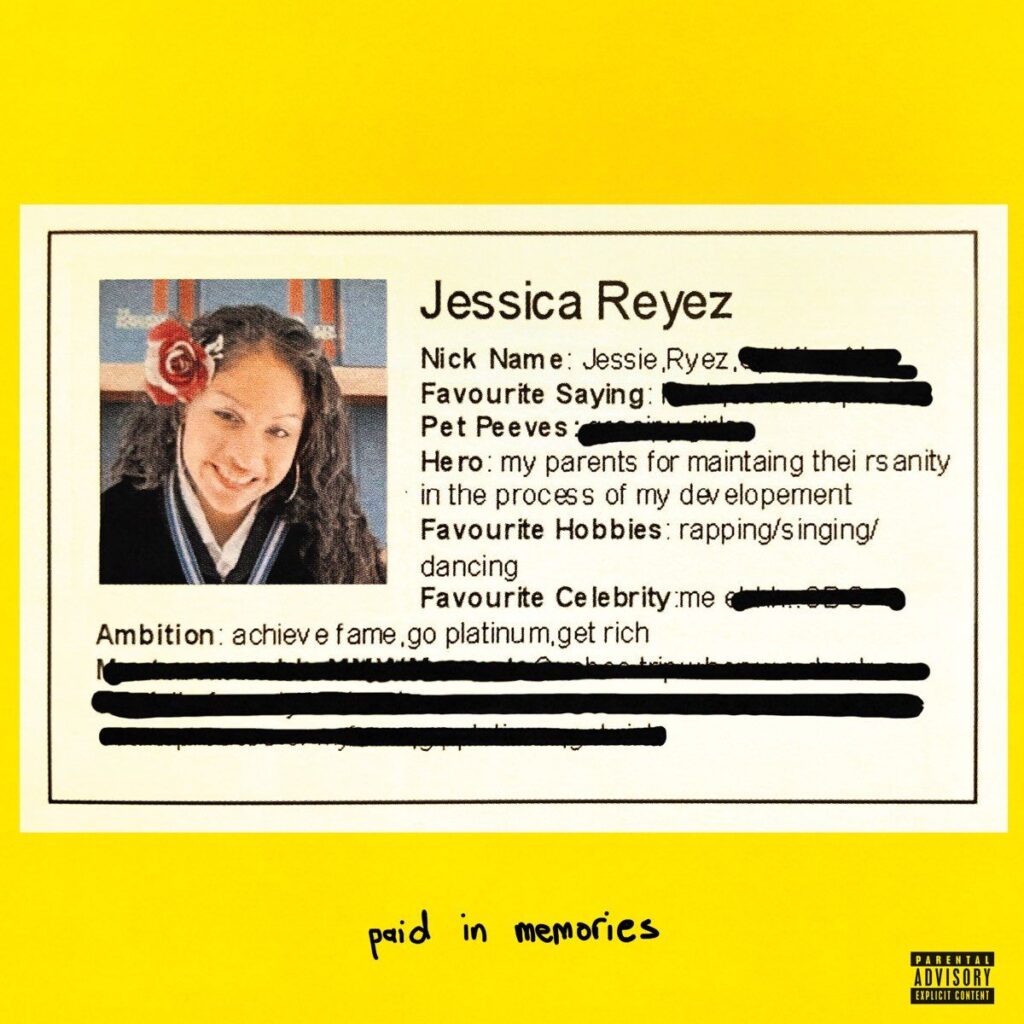
Jessie Reyez Does It All, And Then Some on Paid In Memories
The Toronto-born maverick plays with funk, horn-backed R&B, afrobeats, and more on her third full-length.
by Cam Delisle
Perpetually teetering between chaos and control, Jessie Reyez doesn’t just infuse her music with personality—she lets it saturate every last bit. Paid In Memories, her third studio album, is no exception to this standard, manoeuvring through a labyrinth of influences with ease and confidence. Pluck each song out of the album’s context, and she effortlessly commands every genre she touches. Be it the sensual allure of ’90s R&B à la Toni Braxton (“NIGHTS WE’LL NEVER HAVE”) or shimmering disco-pop (“NYB”), Reyez conquers this genre-patchwork like a sonic shapeshifter.
Opening with the sharp “I NEVER SAID I WAS SANE,” Reyez immediately alludes to the theme of the album—an unrelenting plunge into the wreckage of a love slowly decaying. It registers like a confrontation with both self and heart, unraveling in real time across the 21-track project. She links up with Lil Wayne on the masochistic “RIDIN,” Ari Lennox on the acoustic-backed “JUST LIKE THAT,” and even Sam Smith on “CUDN’T BE ME,” where they pay Reyez a visit via voicemail. Smith’s appearance serves as a come-back-to-earth moment for Reyez, declaring “He will regret this for as long as he lives” before diving into “BEGGIN 4 LUV,” a mid-tempo self-reminder that Reyez isn’t asking for too much, she’s just “asking the wrong one.”
Reyez’s voice—gritty and magnetic—has always set her apart from her peers. With every crack and flicker, her voice becomes less and less about technicality and more about visceral truth. She’s effortlessly relatable, with Paid In Memories overflowing with lyricism that feels tailor-made for your feed, yet never lapsing into the realm of sell-out sentimentality. Instead, it’s a balance of introspection and accessible emotion, where each line feels like a snapshot of real life. The album wraps with “SHUT UP,” where Reyez taps Big Sean for one of the project’s more straight-down-the-line R&B moments. It’s an ironic, yet fitting conclusion—parting the curtain on a journey through her recent past while foreshadowing the future. The track serves as both a reflection and a prelude, making the end feel more like a turning point than a resolution.




